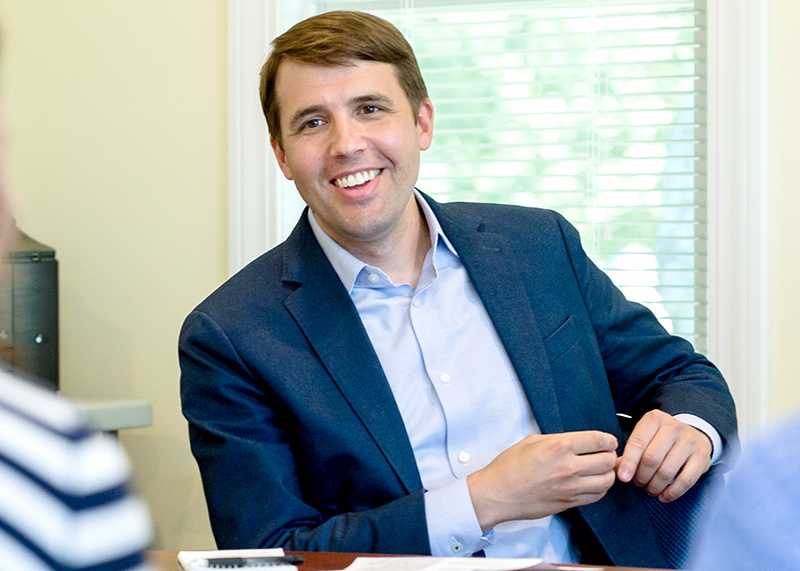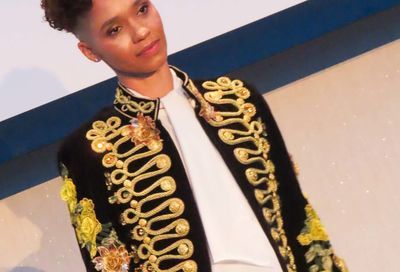Virginia Democrats, eager to deliver on campaign promises, introduce fair housing bill
Proposed bill would prohibit landlords and realtors from discriminating against LGBTQ renters or buyers

In the decade since Del. Delores McQuinn (D-Richmond) first took office, fair housing bills have been introduced each year in the Virginia General Assembly, only to never see the light of day under Republican leadership. Come January, McQuinn is hoping that Democratic control of the House of Delegates will break that legislative impasse.
“This agenda item has certainly been on the list of priorities for the Democrats, looking at the issue of prohibiting discrimination in any form, and making certain we are trying to eliminate or eradicate it. So we decided that we would move forward and make this one of our priorities,” explains McQuinn, who has pre-filed legislation to add protections for sexual orientation or gender identity to Virginia’s 1968 Fair Housing law.
Related: Virginia Democrats flip General Assembly, paving a path for LGBTQ rights
In past legislative sessions, some Republicans would insist that there was no evidence of outright discrimination against the LGBTQ community. This claim was eventually proven untrue by 2015 study by Housing Opportunities Made Equal of Virginia, Inc. found that in a study of matched-pair email tests, prospective tenants who could be identified as LGBTQ or in a same-sex relationship experienced at 44% rate of negative differential treatment compared to a similarly situated heterosexual couple.
Yet Republicans, in several subcommittee hearings held throughout the past decade, would cave to pressure from groups opposed to adding any recognition of LGBTQ rights into the Virginia Code — namely, the Family Foundation of Virginia, the Virginia Catholic Conference, and an affinity group for retired Baptist ministers — and would table the bills before they could be voted on by the full House Committee on General Laws.
“With the testing going on, and realizing that discrimination is occurring at a much higher percentage than people realized, the proof is in the pudding,” says McQuinn. “Historically, we know that unfair housing practices exist. Discrimination has always existed, as a barrier to keep some in and others out, whether it’s based on race, sexual orientation, or other characteristics. It’s been used in the past, and I wouldn’t be so naive to think that it wouldn’t still be used in 2019.
“We just cannot look the other way,” she adds. “As an African-American and as a woman, I know discrimination firsthand, and so I have been adamantly against it in any form.”
McQuinn is receiving a boost from her party’s leadership in pushing the bill, earning the endorsement of Speaker-designee Eileen Filler-Corn (D-Fairfax Station). In an email to supporters, Filler-Corn specifically singled out McQuinn’s bill, along with measures pushing for ratification of the Equal Rights Amendment, universal background checks for firearm sales, and allowing no-excuse in-person and mail absentee voting, as chief priorities for the upcoming session.
“For years now, House Democrats have consistently pushed to build a Commonwealth that works for all Virginians, and the first bills filed reflect our commitment to equality and uphold our accountability to Virginia voters,” Filler-Corn said in a statement.
Majority Leader-elect Charniele Herring (D-Alexandria) noted in a statement that with Democrats in control, measures that have widespread support from Virginians — including prohibiting housing discrimination — will be heard and receive votes, something that gives McQuinn hope for the fate of her own bill.

“I’ve sat on those committees, subcommittees, and I’ve felt that even my voice wasn’t being heard,” McQuinn says of how Republicans have used subcommittees to kill bills without debate at the Speaker’s behest. She also expresses hope that Democrats will run subcommittee meetings in a way that discourages the regionalism or biases of members — something that has been all too apparent in the way that downstate delegates often dismiss priorities or ideas espoused by their Northern Virginia colleagues, regardless of party.
“It is my hope that we would be determined to have a fair and open process that includes all the citizens of Virginia,” she says.
Mariah Williams, the director of policy and research at HOME of Virginia, notes that the organization has long advocated for a fair housing bill, which dovetails nicely with the organization’s chief mission.
“We believe that people should not be excluded from accessing housing, and living where they want to live simply because of their sexual orientation or gender identity,” she says. “Housing is really the foundation for people to be able to access other opportunities, whether it’s employment or education. Housing is the foundation of American Dream, and we believe everyone should have access to that.”
While LGBTQ advocates have in the past embraced a more “piecemeal” approach to LGBTQ rights, with standalone bills prohibiting housing and employment discrimination, some have been emboldened by Democrats’ recent success at the ballot box. Now, with both chambers of the General Assembly controlled by LGBTQ-friendly allies, organizations like Equality Virginia see an opportunity to pass a broader, more comprehensive nondiscrimination bill that includes protections for LGBTQ people not only in housing, but in employment, credit, and public accommodations.
Asked whether her fair housing bill’s more targeted approach would have an easier time gaining support among elected officials than a more Equality Act-style bill, McQuinn says she hopes to continue dialogue and discussions and to exercise leadership to get more people to support the general principle of prohibiting all forms of discrimination, regardless of what form legislation to achieve that goal ultimately takes.
“There will be a lot of things for us to focus on in terms of hoping to make progress and lead Virginia forward,” she says. “I am of the opinion that it is not whether there’s one way that’s more aggressive than the other, or one way that’s right or wrong. But I am trying to, as I lead, bring people along.
“Looking at myself as an African-American, I think, as Dr. King once said, the time is always right to do what’s right,” adds McQuinn. “But as he lead, he spent so much time engaging in dialogue and helping people understand the challenges of the time, and I think it’s important for us to do likewise.”
Read more:
Congressional Republicans introduce “fairness” bill with a host of religious exemptions
LGBTQ activists attack Pete Buttigieg for previously volunteering for the Salvation Army
California inmate sentenced to death for killing his transgender cellmate
Support Metro Weekly’s Journalism
These are challenging times for news organizations. And yet it’s crucial we stay active and provide vital resources and information to both our local readers and the world. So won’t you please take a moment and consider supporting Metro Weekly with a membership? For as little as $5 a month, you can help ensure Metro Weekly magazine and MetroWeekly.com remain free, viable resources as we provide the best, most diverse, culturally-resonant LGBTQ coverage in both the D.C. region and around the world. Memberships come with exclusive perks and discounts, your own personal digital delivery of each week’s magazine (and an archive), access to our Member's Lounge when it launches this fall, and exclusive members-only items like Metro Weekly Membership Mugs and Tote Bags! Check out all our membership levels here and please join us today!
























You must be logged in to post a comment.